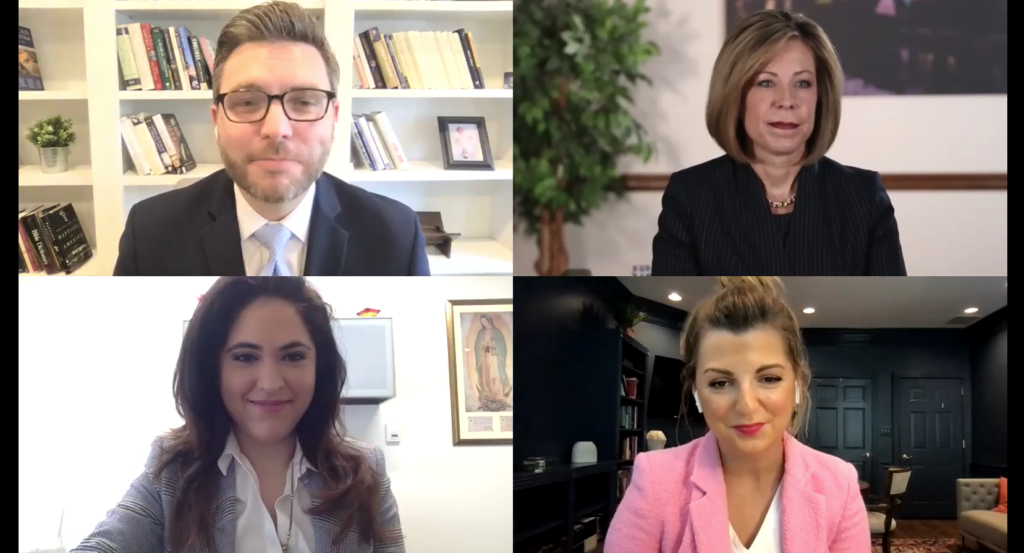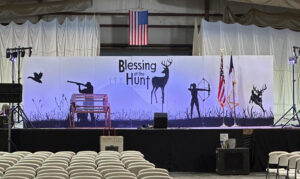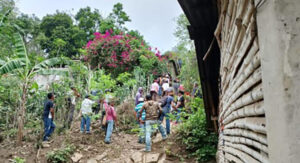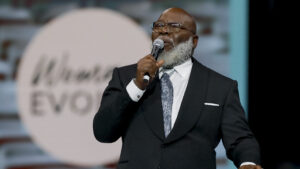
NASHVILLE (BP)—The U.S. Supreme Court advanced religious freedom in its latest term but needs to do more to protect the First Amendment right, participants in a Southern Baptist-sponsored webinar were told Thursday (July 29).
The Ethics & Religious Liberty Commission (ERLC) hosted a discussion of some of the high court’s rulings in its 2020 term with representatives of Alliance Defending Freedom (ADF), Becket and the ERLC. The conversation focused on First Amendment decisions in the last term but also looked ahead to a major abortion case the justices have already decided to rule on during the next term, which opens in October.
“It absolutely was a helpful term,” said Kristen Waggoner, ADF general counsel who oversees the organization’s U.S. legal division, of the session that ended in early July. “What we can say is we moved the ball forward in protecting First Amendment rights this term”
She thinks ADF and Becket share the goals “of assuring religious autonomy for religious organizations, of wanting to protect speech broadly” and “to undermine and effectively overturn” the 1990 Smith decision, Waggoner said. In the Smith opinion, the high court ruled the Constitution does not require an accommodation for free exercise of religion in the case of a neutral law that is generally applicable to the public. Critics point out the ruling has made it more difficult to protect the religious free exercise guaranteed in the First Amendment.
Though the Smith decision was not abandoned, “[W]e saw gains in all three of those areas in this term,” Waggoner told the online audience. “We do keep winning, but we’re not winning at the pace that we need to or with the breadth we need to.”
Montse Alvarado, Becket’s vice president and executive director, agreed.
“I am super, super enthusiastic about where the court is going,” Alvarado said. “Gosh, do I wish that this was moving faster? Absolutely.”
The court’s “fantastic, 9-0 decision,” as Alvarado described it, in Fulton v. City of Philadelphia was a major victory for religious liberty.
In that June opinion, the justices upheld the right of a faith-based adoption and foster-care agency represented by Becket to carry out its ministry according to its beliefs. They agreed Philadelphia, Pa., violated the free exercise of religion by halting referrals to Catholic Social Services because it does not place children with same-sex couples.
The ruling is “a signal around the country, and I think a signal to the rest of the world as well, that in the United States of America rights are not a zero-sum game,” Alvarado told participants. The right to same-sex marriage created by the high court in a 2015 opinion “is not a First Amendment right, does not supersede free exercise,” she said of the Fulton decision.
Chelsea Sobolik, the ERLC’s acting director of public policy, said the Fulton opinion essentially indicated “vulnerable children are best served when there’s a pluralistic and diverse group of organizations serving them. We need more people involved in serving vulnerable children, not less.”
“What this means for Christians and for Baptists is that we can continue the good work that we’ve always done,” she said. “We can continue in being involved in caring for kids.”
The U.S. foster care system has more than 420,000 children, about one-fourth who are eligible for adoption, Sobolik told the audience. Christians are twice as likely to adopt, and families recruited through churches or religious organizations provide foster care for about 2 1/2 years longer than average foster parents, she said, citing statistics provided by Becket.
In another victory for First Amendment rights, the Supreme Court ruled by 8-1 in a March opinion a student’s suit against Georgia Gwinnett College for barring him from sharing the Gospel of Jesus in a campus free-speech zone may continue even if it is for “nominal damages” of only $1. Though the school changed its policy after Chike Uzuegbunam graduated, the justices found it could be held accountable for violating his freedom in the past.
The opinion “doesn’t just help students on campus, but it helps all kinds of civil rights to be able to move those cases forward and to establish the precedent that we need to protect rights in the future,” Waggoner said. ADF filed suit on behalf of Uzuegbunam.
The high court’s refusal, however, in early July to rule on Barronelle Stutzman’s legal effort to operate a florist shop in Washington state according to her Christian convictions is “extremely disheartening,” Sobolik said. The justices declined to review an appeal by Stutzman, a Southern Baptist, of a Washington Supreme Court ruling in 2019 that she was guilty of illegal discrimination by declining to design flowers for a same-sex wedding.
“It’s a great injustice that the court didn’t take the case,” said Waggoner, whose organization has represented Stutzman in court for nine years. ADF has filed a rehearing request with the Supreme Court.
The Supreme Court needs to repair the damage the 1990 Smith opinion did to religious free exercise, Alvarado and Waggoner told moderator Brent Leatherwood, the ERLC’s chief of staff and vice president of external affairs.
The justices are having a significant discussion involving the Smith decision, Alvarado said.
“What happened 30 years ago and how do we fix it? And how do we bring everyone along with us, as in the justices who don’t necessarily believe that something wrong happened?,” she said.
“Religious freedom has really become the cornerstone of how the court is addressing individual liberty,” Alvarado said. “It used to be the canary in the coal mine, the thing that told you that there was something wrong with the law. And now it’s at the forefront. It’s that crack in the dam that opens up the floodgate to freedom.”
In the next term, the high court has agreed to decide what Waggoner called the “the most important pro-life case in a generation.”
The justices will rule on Mississippi’s 2018 law prohibiting abortions of unborn children whose gestational age is more than 15 weeks. The state has urged the high court to overturn the 1973 Roe v. Wade ruling that legalized abortion nationwide and the 1992 Planned Parenthood v. Casey opinion that affirmed the Roe decision but permitted some state regulation of the procedure.
In friend-of-the-court briefs, the ERLC and other organizations also have called on the high court to reverse the Roe and Casey decisions. The ERLC-endorsed brief encourages the justices to revoke those opinions’ rule that bars states from prohibiting abortion before an unborn child is viable. Viability for an unborn child, or the ability to survive outside the womb, is typically considered to be several weeks after the limit set by Mississippi’s Gestational Age Act.
Why a ban after 15 weeks?, Waggoner asked.
“Because if we have a ruling that protects life at 15 weeks, we’ve essentially gutted Roe and Casey,” she said. “We’re very optimistic.”














